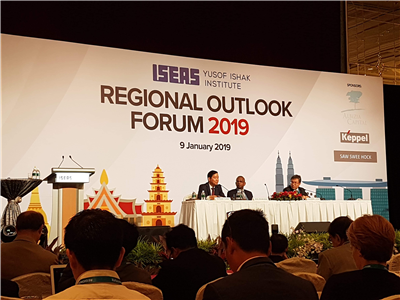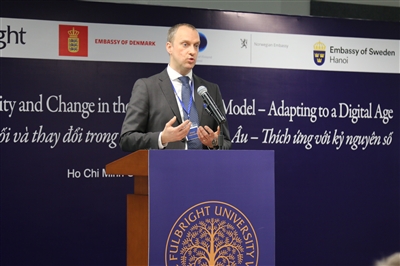On 22nd February, on celebration of Nordic Day 2019, the Nordic Embassies in Vietnam (Finland, Sweden, Norway and Denmark) together with Fulbright School of Public Policy and Management hosted the seminar on “Continuity and Change in the Nordic Society Model – Adapting to a Digital Age”.
The seminar spotlights the participation of four Nordic Ambassadors and four prominent Nordic experts: Mr. Adam Lebech, Deputy Director General of the Danish Agency for Digitalization; Ms. Anna Sundstrom, Secretary General, Sweden’s Olof Palme International Centre, Dr. Paula Saikkonen, Senior Researcher, National Institute for Health and Welfare; and Dr. Silvvija Seres, Mathematician and Technology Investor from Norway.
Over 70 representatives, policy makers, technology and economic development experts in HCMC participated and shared their ideas in the seminar.
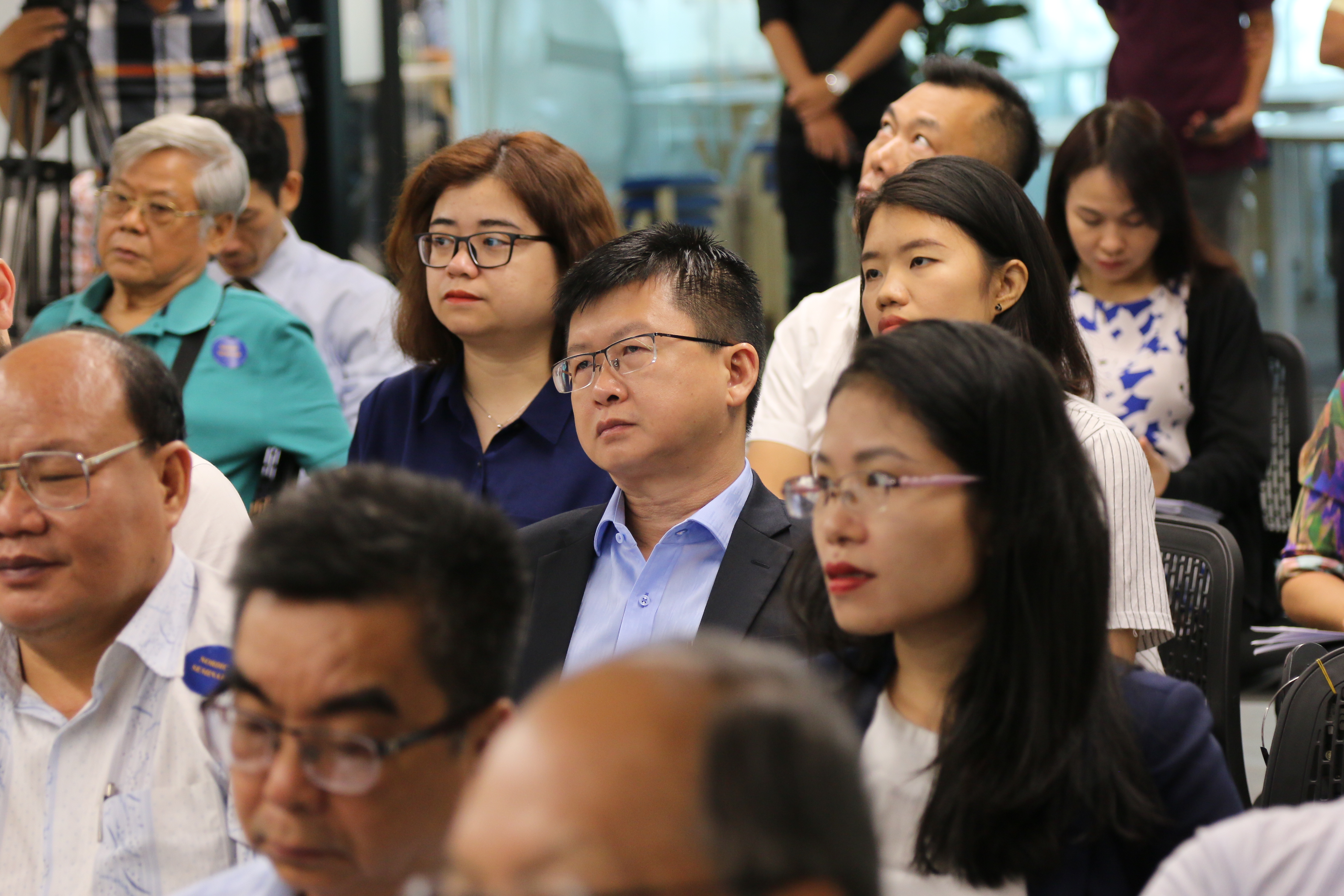
Representatives and experts attending the seminars
Attending the seminar, speakers and participants discussed extensively on Nordic welfare states, their policies in wealth distribution, social investments and these countries’ responses to Industrial Revolution 4.0 in the future.
The speakers shared that around 100 and 150 years ago, Nordic countries started as underdeveloped countries as benchmarked against contemporary European standards; however, with proper wealth distribution policies, the income gap is reduced and different social classes enjoy universial quality in education, healthcare, public services and growth opportunities. Nordic countries are succesful in creating high social trust and enforcing the trust between citizens and the government.
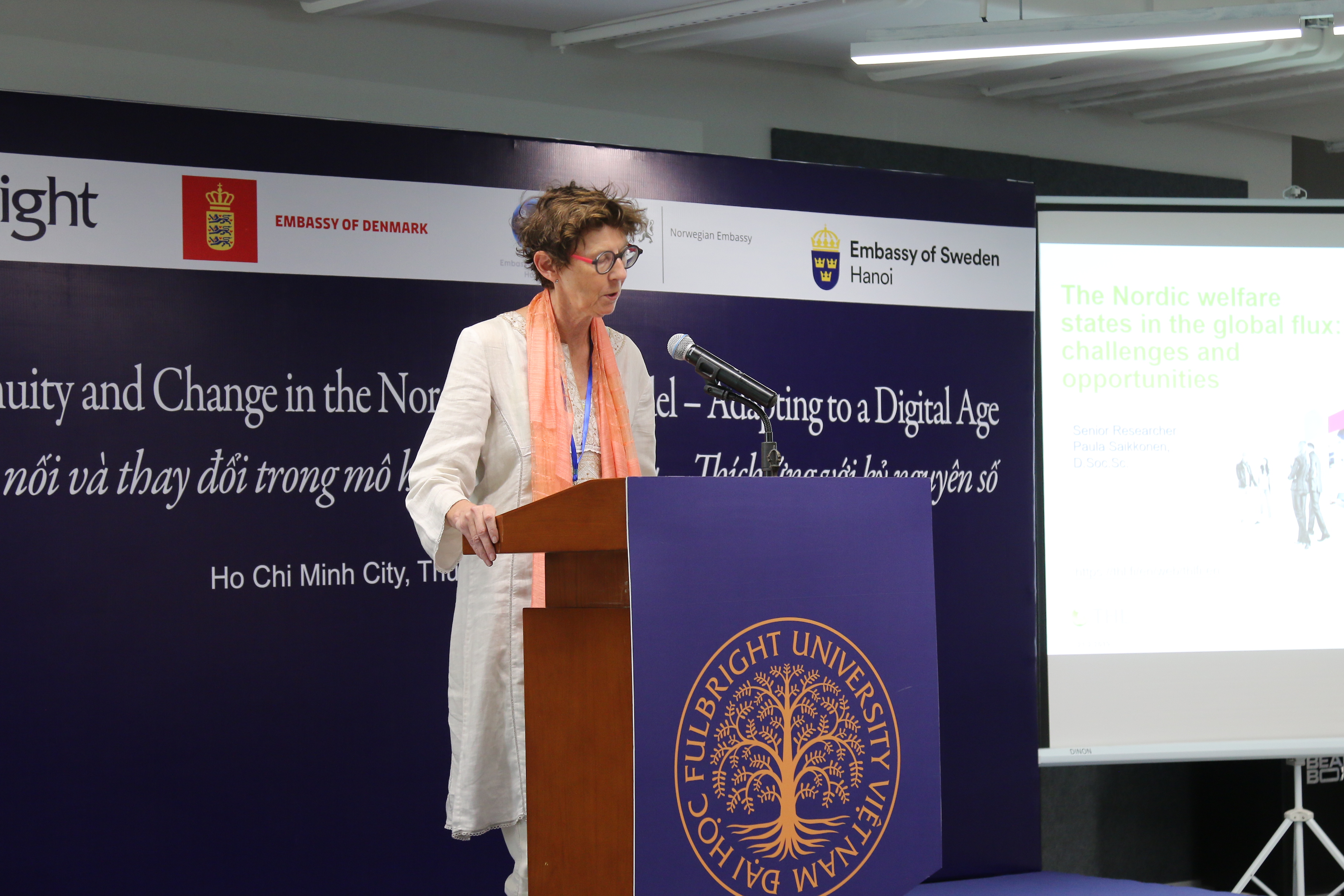
Her Excellency, Grete Lochen, Ambassador of Norway to Vietnam delivered the opening remarks
Dr. Paula Saikkonen explained that, “we can say that Nordic countries have a kind of strategy of social investments. This is another way to say that the public spending is seen more like an investment than spending as such. Sometimes, it is described as a good circle as an opposite to a vicious circle. For example, good education brings high-skill workers, and high-skill workers bring technological innovations, the technological innovations bring more tax revenue and tax revenues enable better education. Investing in social capital brings social trust that enables the societies better and more efficiently accomplish different tasks.”
From his presentation on e-government in Denmark, Mr. Adam Lebech asserted that “one of the great advantages of e-government is that it creates transparency which can lower corruption. E-government thus helps make Denmark the country in the world that is seen as least corrupt…E-government can also reduce costs for government…Vietnam has a great opportunity to develop faster – a lot of the solutions can be introduced very fast now, if the strategy is good.”
Ms. Anna Sundstrom, General Secretary of Olof Palme International Research Center emphasized the role of welfare systems and social insurance in responding to technological disruptions “it necessiates and unemployment insurance that provides a secure income protection, an education system and a labour market policy that can give the person who loses his/her job a new chance in the labour market. If people feel safe it is easier to embrace change…Through strong public welafre, sound industrial relations of the Swedish labour market has been achieved without nay major social unrest.”
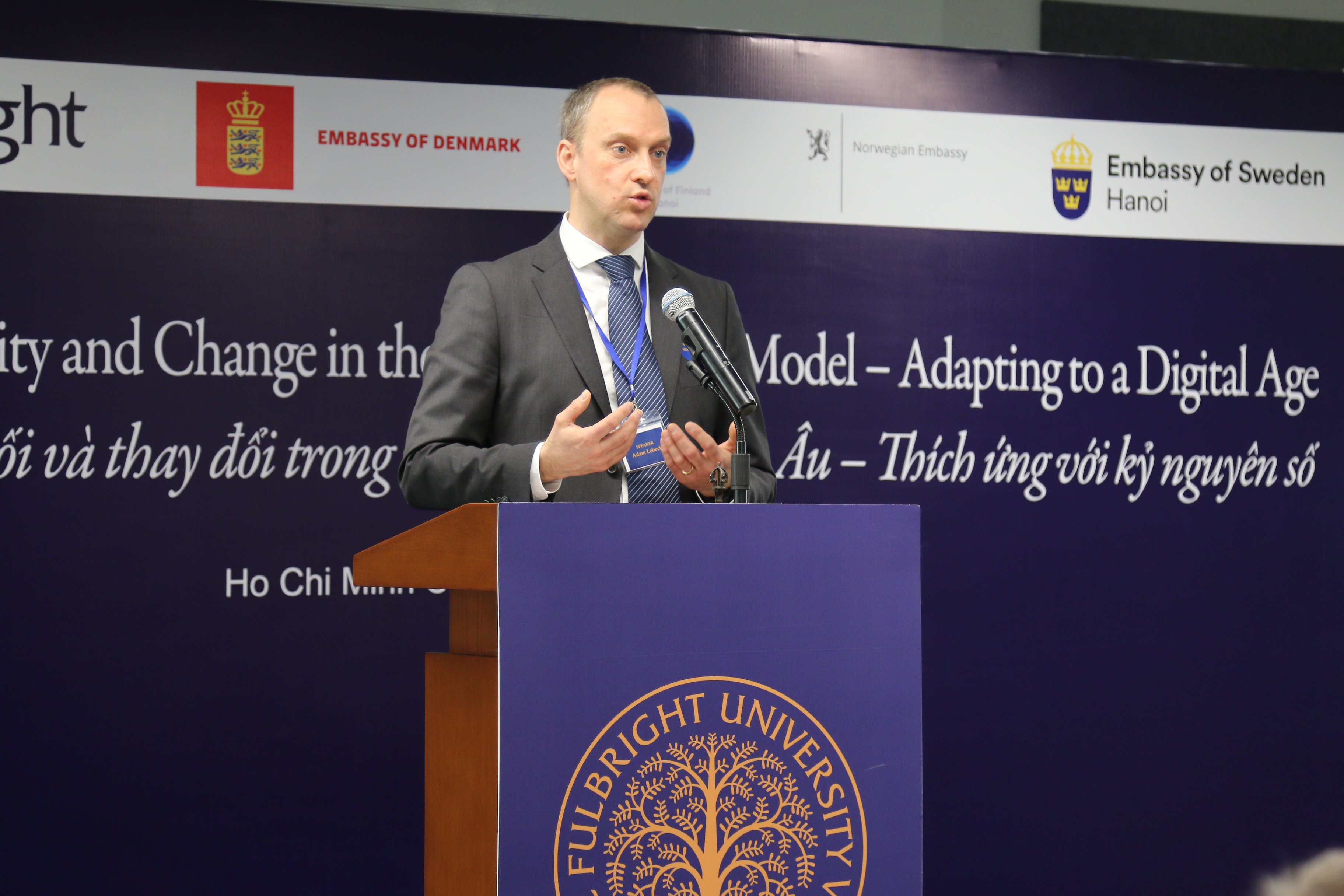
Mr. Adam Lebech presented about e-government in Denmark
On the grounds of these sharings, Dr. Vu Thanh Tu Anh, Dean of the Fulbright School confirmed that, “technology is not only about the technical things it’s much more about rebuilding the relationships between the capital, the state and citizens.”
In his closing remarks, Dr. Tu Anh encouraged Nordic Embassies to be more engaging with Vietnam government particularly when the state and the Party have decided to take a new approach in development model.
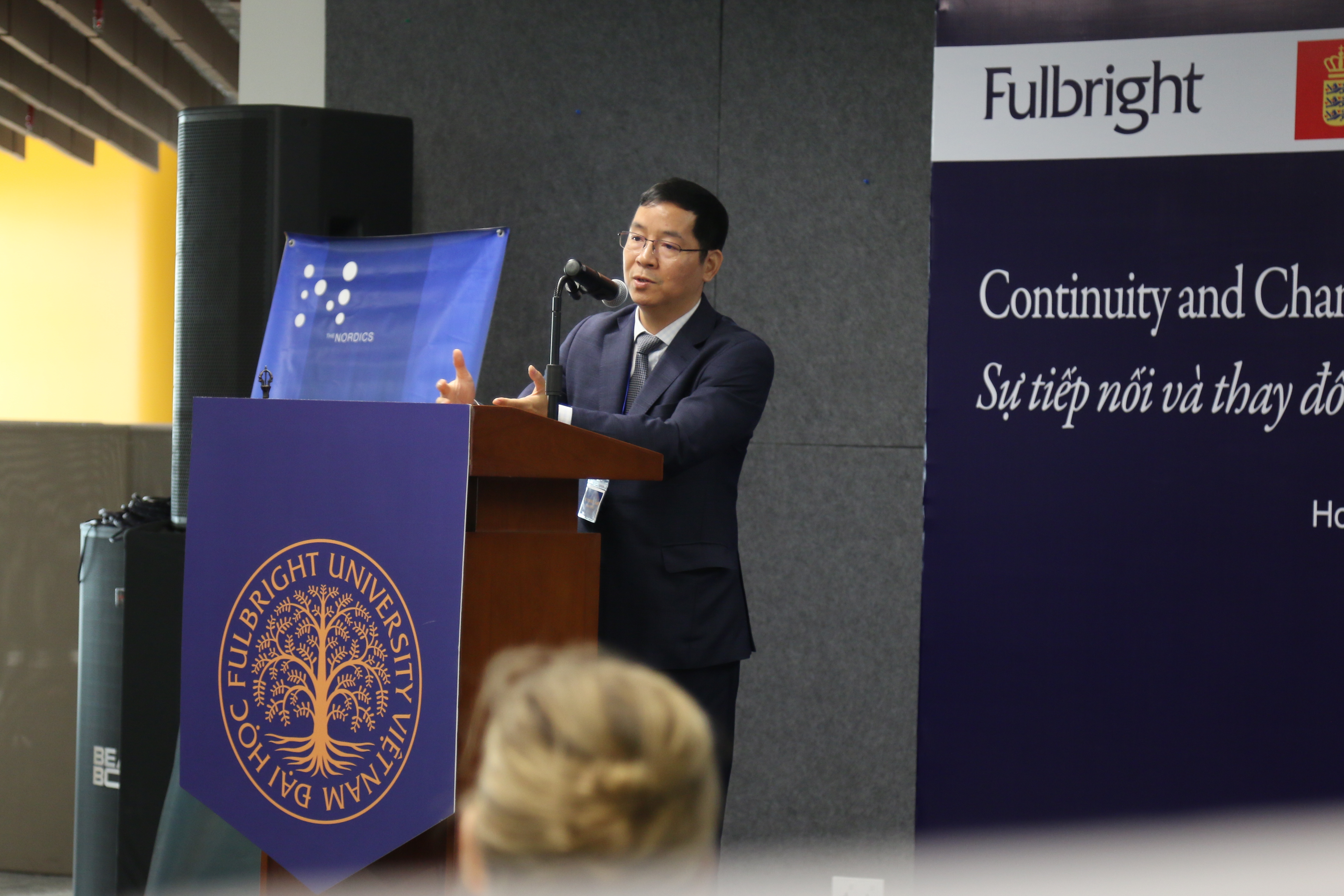
Dr. Vu Thanh Tu Anh, Dean of Fulbright School of Public Policy and Management, say a few words to conclude the seminar
Some other memorable moments in the seminar:
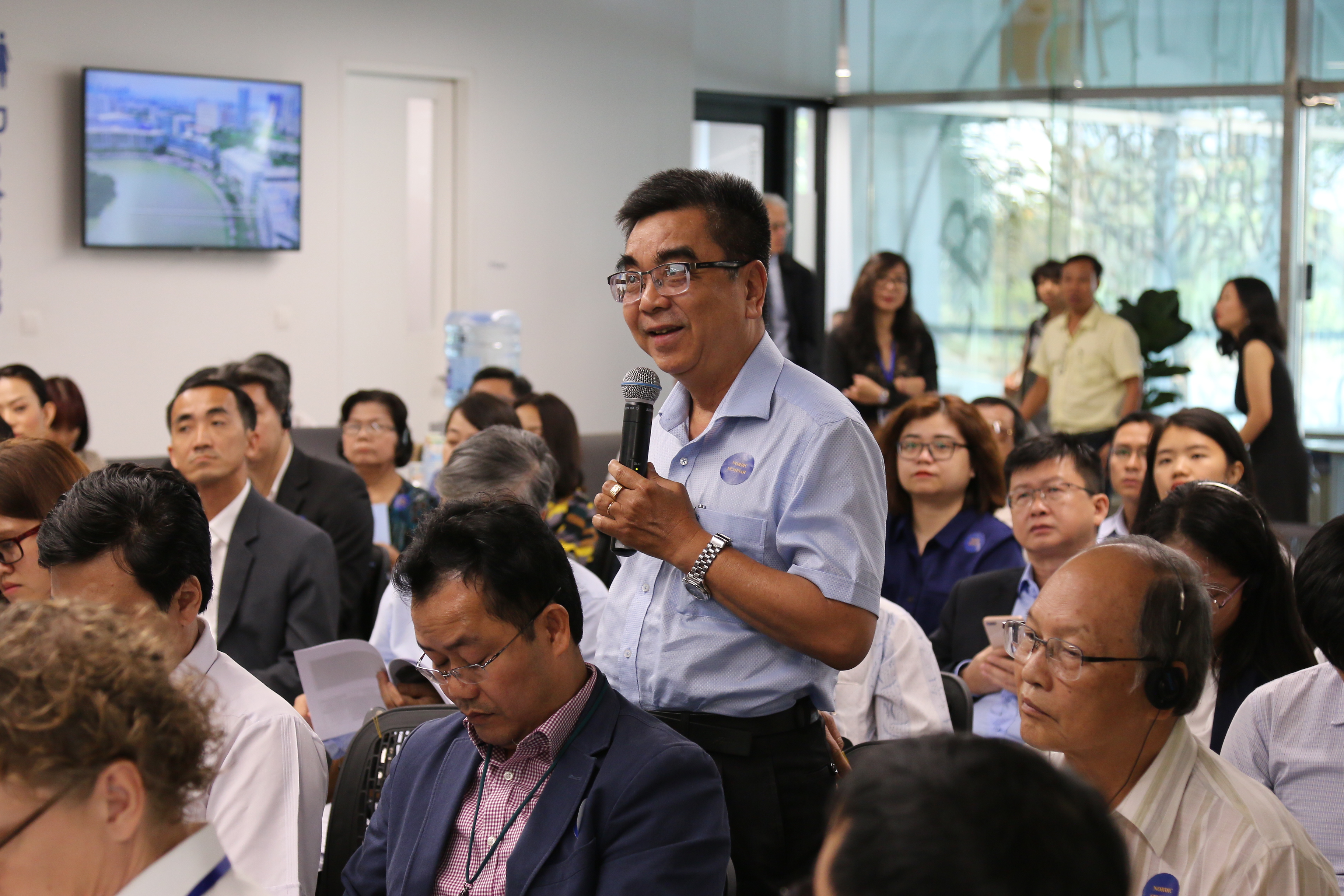
Participants asking questions about Nordic society models
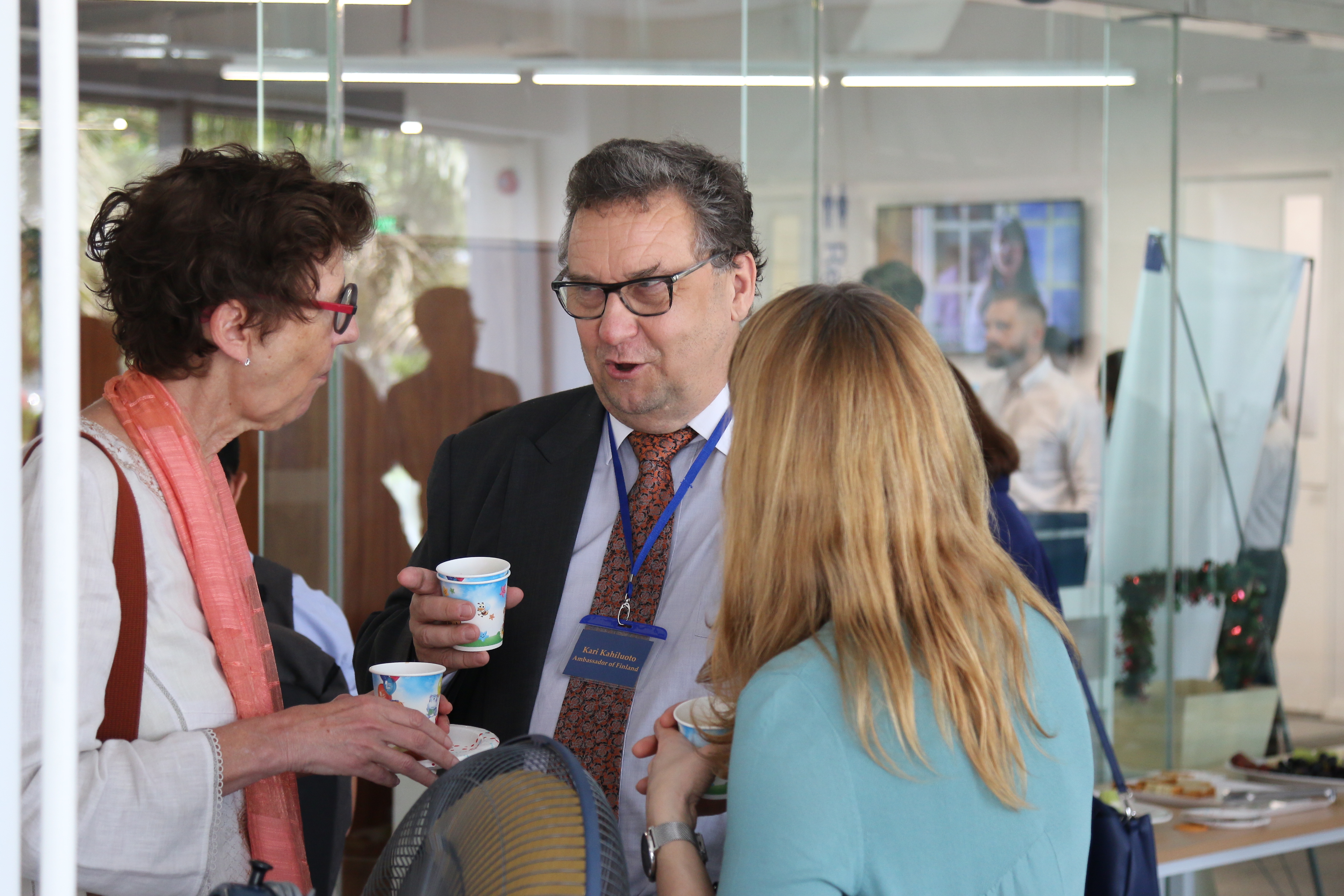
Distinguished guests and participants shared their ideas during break time
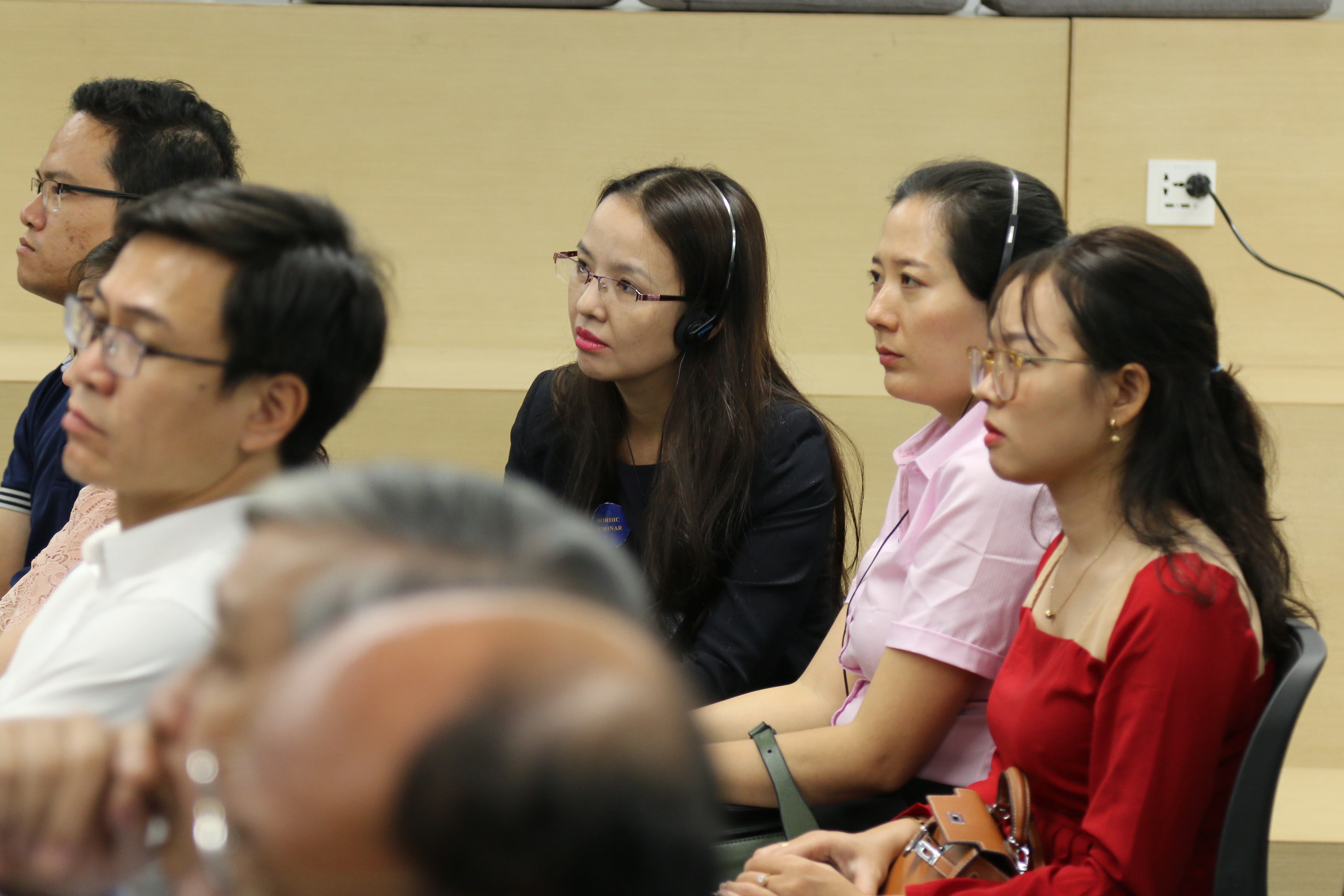
Pariticpants listen to speakers' presentations on Nordic success stories.
Related Articles

Fulbright University Vietnam Academic Conference 2019
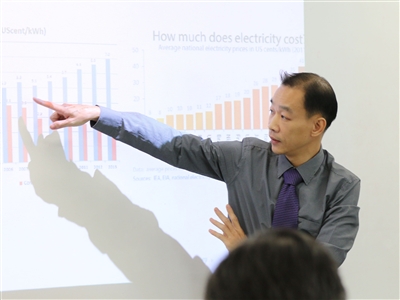
Energy Demand and Factor Substitution in Vietnam: Evidence from Two Recent Enterprise Surveys
